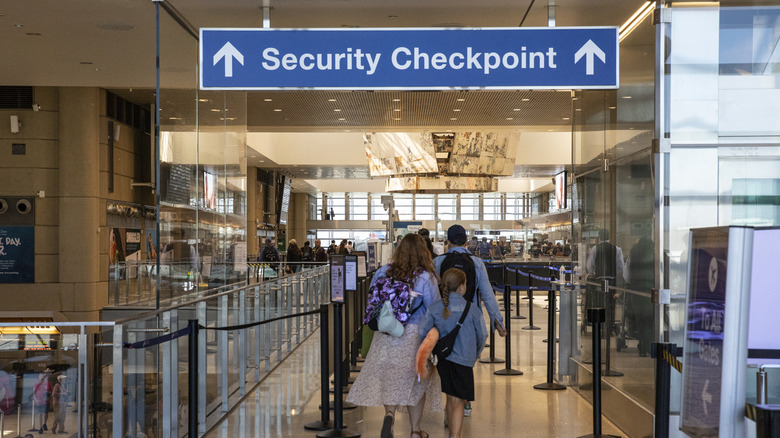Will Travel Insurance Help You If You're Detained At The US Border?
Imagine you've planned the perfect vacation to the United States — booked your flights, reserved your hotel, and even created an itinerary packed with sightseeing and dining. But when you land, a U.S. border official pulls you aside for questioning. Hours pass, and you're informed that you won't be allowed entry. Instead, you're detained, processed, and placed on a flight back home — all at your own expense. You're not only losing the money you spent on flights and accommodations but you're also unexpectedly paying for a last-minute return ticket.
Unfortunately, this is one of the surprising things travel insurance doesn't cover (usually, at least). Most standard policies exclude denied entry from their list of reimbursable situations, meaning travelers are left to bear the costs themselves. However, while rare, some insurers offer specialized benefits that can help cover a portion of the expense if you're refused entry at the U.S. border.
Travel insurance companies expect travelers to meet all entry requirements, such as securing a valid visa, before departure. Even so, meeting all the legal conditions doesn't guarantee entry. In February 2025, two German tourists — both with valid Electronic System for Travel Authorization (ESTA) approvals — were separately detained and deported from the U.S., according to AP News. One of the German travelers reportedly had to foot the bill for nearly $3,000 for an unexpected flight home. The UK government has also issued a warning to travelers to America about stricter border enforcement and the potential for detention. While some travel policies include trip interruption coverage, denied entry is not generally among the listed covered reasons.
Why travelers to the US get detained — and what to do if it happens
Travelers can be detained at the U.S. border for reasons ranging from visa issues to concerns about their intentions for visiting. Immigration officers may detain visitors who lack the appropriate visa, have overstayed a previous visa, or fail to provide proof of a return flight. Even if all paperwork is in order, giving inconsistent answers or just appearing suspicious can raise red flags. U.S. border officials have wide discretion in deciding who is allowed to enter, meaning that even travelers with valid documentation aren't guaranteed entry.
If entry is ultimately denied, the traveler must leave the country immediately, often having to book a last-minute return flight at their own expense. Some airlines may allow travelers to use an existing return ticket for the earlier departure, but this isn't guaranteed. For example, Lufthansa states that passengers denied entry can apply the value of an unused return flight toward the cost of a new one, but any remaining balance falls on the traveler, and they won't get a refund for the arrival flight.
For those who believe their denial was unjustified, there is a possible (though tedious) appeal process. A Notice of Appeal can be filed with the Board of Immigration Appeals, though this doesn't guarantee a reversal of the decision. Unfortunately, because travel insurers view denied entry as a failure to meet requirements, they typically won't cover any related expenses. However, there is at least one exception: ChoiceAmerica offers a special U.S. Border Entry Protection Benefit, which reimburses travelers for up to a fixed amount of the return flight if they are denied entry. This option is available to non-residents and non-citizens entering the country, providing at least some financial relief in an otherwise costly situation.
How to protect yourself from financial losses due to denied entry
To minimize financial risks, some travelers opt for Cancel for Any Reason (CFAR) or Interruption for Any Reason (IFAR) coverage. These policy add-ons give you greater flexibility, reimbursing a percentage of prepaid travel expenses regardless of the reason for cancellation or interruption. With Trawick International, for example, travelers can purchase CFAR within seven days of their initial trip deposit, covering up to 75% of non-refundable expenses, such as hotel bookings and tour packages. One of the things you need to know about travel insurance, however, is that CFAR plans tend to be costly and typically only reimburse partial amounts.
If you're denied a visa before departure, some insurers may provide coverage. Allianz Travel Insurance, for instance, states that if a traveler is refused a visa through no fault of their own, they're eligible for trip cancellation coverage. To reduce the risk of being denied entry upon arrival, make sure to carry key documents, including a valid passport, a visa or ESTA authorization, proof of return, and evidence of financial means for your stay. Hotel reservations or an invitation letter from a host can also help prove legitimate travel intentions. For green card holders, it's crucial to apply for a reentry permit if you're planning to stay outside the U.S. for more than a year, since long absences can lead to reentry complications.


